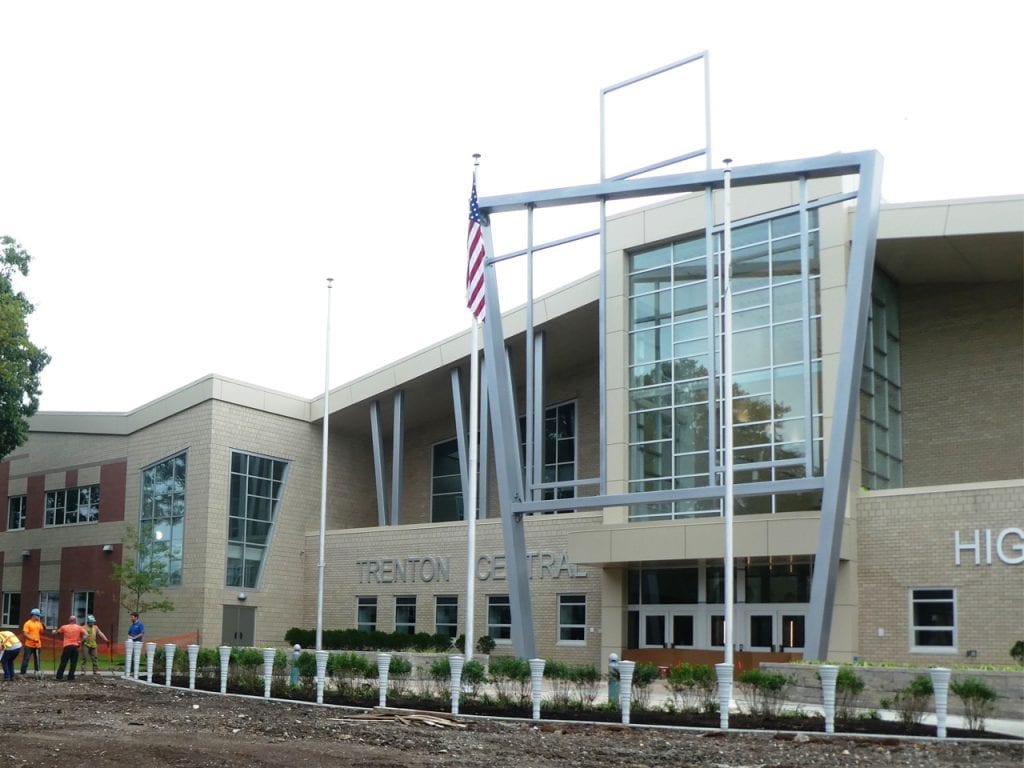Ah, Education Law Center. Some things never change. The organization, largely funded by NJEA, is back in court demanding money for construction for an obsolete list of 31 “Abbott” school districts that were once impoverished. Some of them still are, like Newark and Camden and Trenton. Some of them never were, like Burlington City and Pemberton. And some were once poor but now boast multi-million dollar luxury co-ops, like Hoboken and Jersey City.
But here’s the thing: ELC, which defines itself as “the leading voice for New Jersey’s public school children” and “one of the most effective advocates for equal educational opportunity and education justice” is only interested in advocating for children who attend traditional public schools, not public charter schools.
Given the outpouring of support among parents in Abbott districts for alternatives to schools like Barringer High School in Newark, as well as ELC/NJEA’s animus towards charter schools, the footprint of the once-mighty justice warrior is shrinking. It is its own worst enemy. It is deliberately decreasing its influence on NJ policy and politics.
This self-imposed predicament is exacerbated by the corruption — specifically, fraud and patronage — within the state agency that provides money for facilities for traditional schools in Abbott districts. Once rolling in dough from taxpayers — $12 billion — the School Development Authority is now broke. As Jeff Bennett points out, shelling out cash to SDA is a zero-sum game because that would worsen underfunding of K-12 operations aid, the teacher pension fund, and other expenditures funded by the Property Tax Relief Fund.
But ELC wants billions more for their diminishing constituency.
It’s a poorly-kept secret that New Jersey’s charter school law discriminates against charter schools by refusing to provide any sort of facilities aid. As the charter sector has expanded, particularly in Newark and Camden, students in these alternative public schools — almost all Black and Latino, almost all economically-disadvantaged — are disadvantaged further by the state’s refusal to help with building costs.
Let’s take Newark, which researchers and analysts consider one of the nation’s best charter sectors, with more “beat the odds” schools than any other city in America. African-American students in Newark are four times as likely to enroll in a school where students outperform the state average than they were in 2006. Last year, for the first time, Newark charter students in grades 3-8 eliminated the achievement gap and outperformed the state average in both English language arts (ELA) and mathematics on PARCC.
Currently 35% of Newark students are enrolled in charter schools and another 12,000 are on wait lists. North Star, part of the Uncommon network, currently has 5,397 students waiting for seats and KIPP has 4,374. If New Jersey acceded to parent wishes, there would easily be half of Newark public schoolchildren attending charter schools. (Some of those kids are on more than one wait list.)
This means that ELC is abandoning 50% of Newark’s children.
Camden tells a similar story. There, among 15,000 public school students, only 6,800 attend Camden City district schools and the rest, 8,200, attend either renaissance schools run by KIPP, Mastery, and Uncommon or regular charter schools.
In other words, ELC speaks for fewer than half the students in Camden. And that’s before you factor in the 2,370 children on charter wait lists.
Ryan Hill, CEO and Founder of KIPP NJ, and Brett Peiser, CEO of Uncommon Schools, wrote here,
There are more than 50,000 students enrolled in public charter schools in New Jersey. If these students formed a single district, they would be the largest in the state. And yet the state denies these public school students equal access to facilities’ funding programs that all other school districts can use. New Jersey remains far behind other states that provide public charter schools access to under-utilized facilities, or capital funding to rent, construct or improve facilities.
That’s inequity. That’s inequality. That’s the opposite of “equal educational opportunity and education justice.”
But Education Law Center doesn’t care because those students attend schools that their patrons would just as soon obliterate.
I wish all schools in New Jersey had beautiful facilities, like the $130 million SDA spent (or, rather, taxpayers spent) on the newly-reconstructed Camden High School or the $155 million spent on Trenton High School, which boasts a 6-lane swimming pool, an auto shop, a huge auditorium with balcony seating, a dance studio, and multiple gymnasiums. But most schools lack these ameneties and Abbott classifications, the bulwark of ELC’s lawsuit, have nothing to do with it.
If we’re going to fairly fund schools, the least we can do is acknowledge the increasing numbers of children who sit in charter school classrooms without a penny spent on their facilities. That would be justice.




